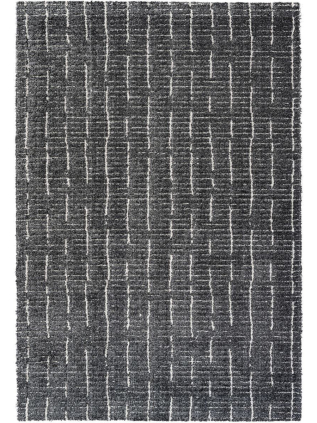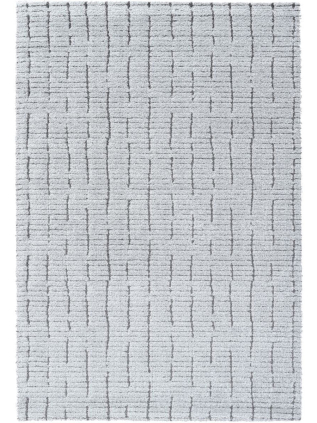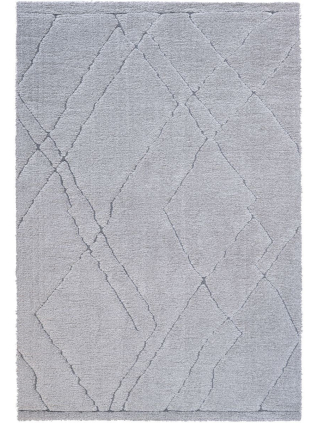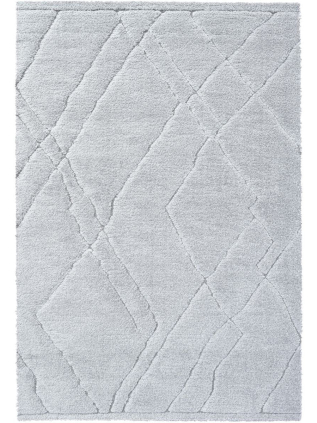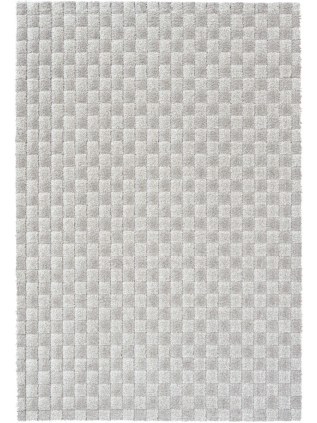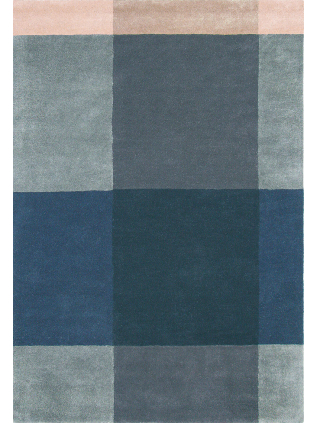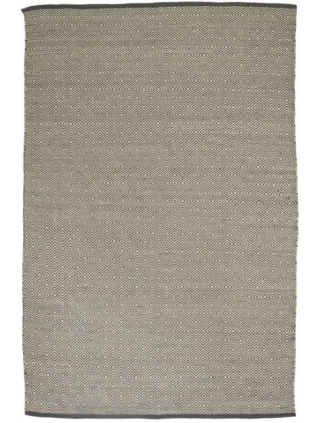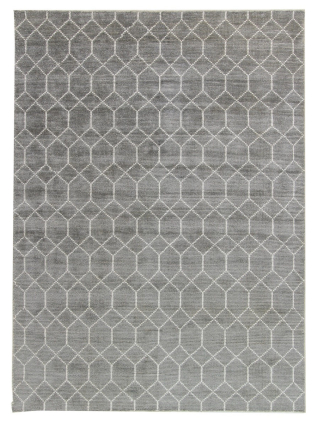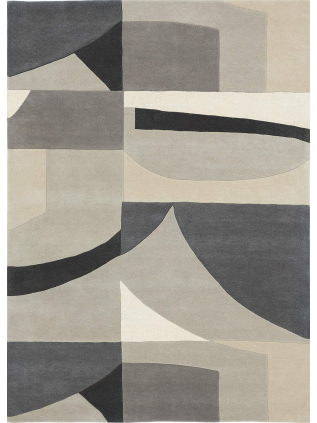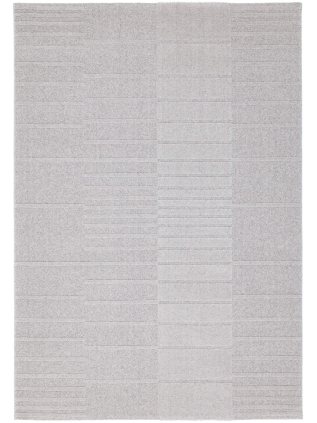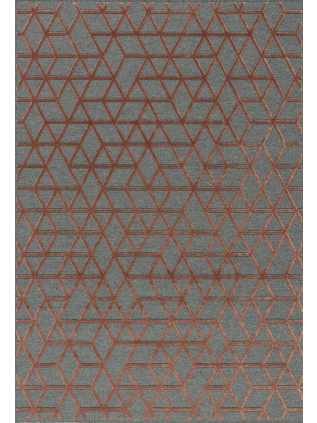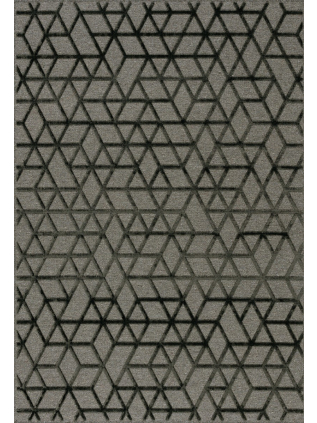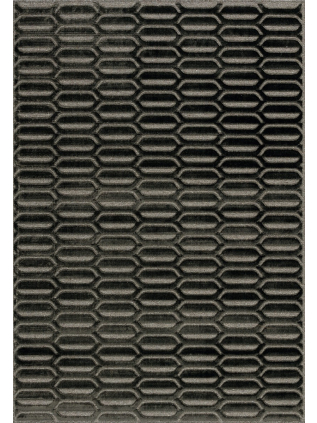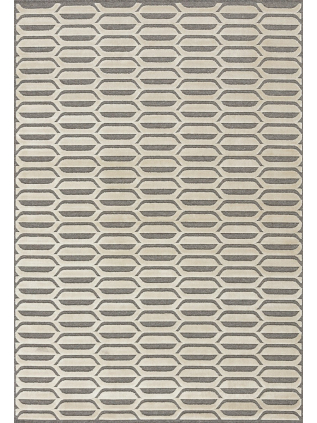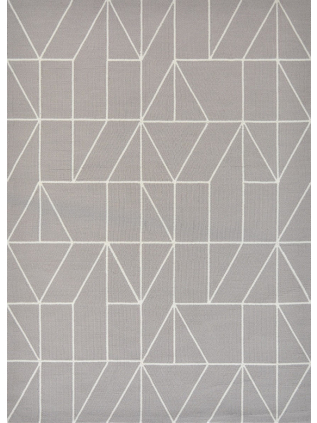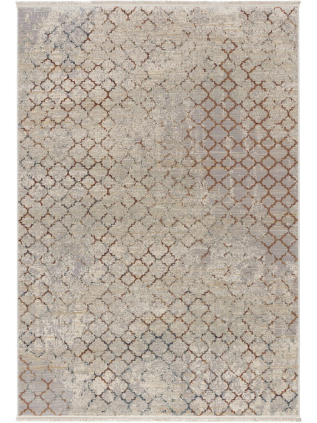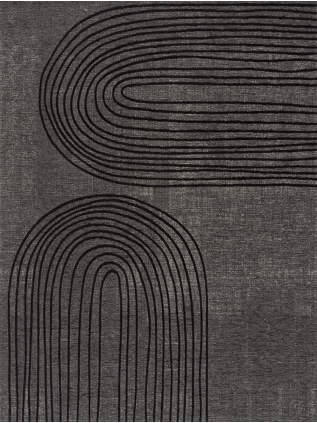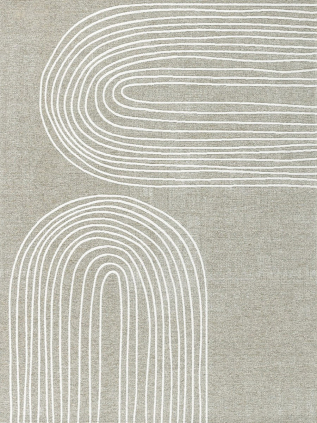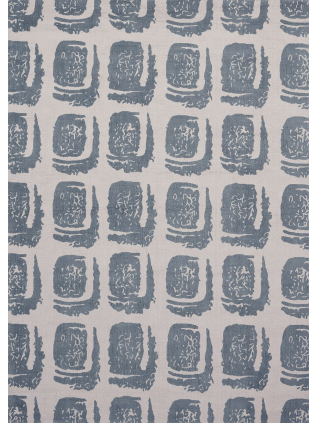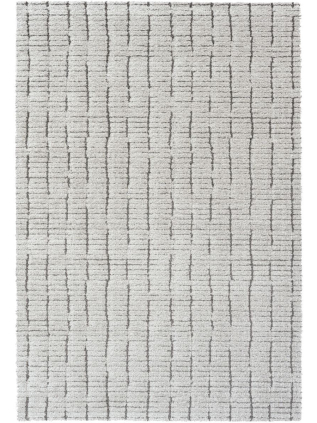Local Storage seems to be disabled in your browser.
For the best experience on our site, be sure to turn on Local Storage in your browser.
Ligne Pure Switch 237.001.900

| Thickness (cm) | 0.50 |
|---|---|
| Country of origin | India |
| Pattern | Geometric |
| Colour | Grey |
| Rooms | Bedroom |
| Material | Wool |
| Fabrication | Hand-knotted |
| Anti-static | Yes |
| Anti-allergic | Yes |
So you’ve decided on the colour, design and structure of your carpet. What do you need to do next? You need to choose the right size. This is where we can help you with some simple tips & tricks.
Which size for the rug under the dining table?
First of all, we would need to know the purpose of the dining table. It may sound strange, but there are actually 2 categories of people when it comes to the use of the dining table:
- • People who dine every day at the table;
- • People who use the dining table as furniture “showpiece”, and only eat at the table the odd occasion when maybe friends or family gather around.
You need to first measure the table. Lets say that the table is 100 x 200 cm.
If you are in the first category, and use it every day, we suggest you add 75 to 100 cm to every side of the table. This would allow for the chairs to remain completely on the carpet at all time. If you have chosen 75 cm, then the width of the carpet would be 250 cm, and the length of the carpet would be 350 cm. If you have chosen 100 cm – then the width of the carpet would become 300 cm and the length would be 400 cm.
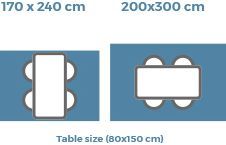
Four Seat Dining Table
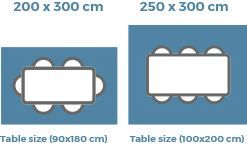
Six Seat Dining Table
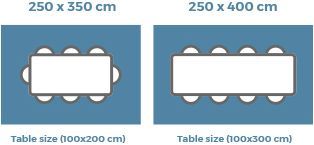
Eight Seat Dining Table
If you are in the second category, and use the table only a couple of times per year, you would probably get away with adding just 50 cm per size, which means you would require a 200 x 300 cm size carpet under the dining table. 75 to 100 cm would still be the recommended size for keeping the proportions right in your room.
Of course, there are exceptions to this rule, but you should keep this in mind: If you don’t have enough place, you just need to maximise what you can.
Remember also, 200 x 300 cm, 250 x 350 cm or 300 x 400 cm are most of the times standard sizes for carpets, and this helps keeping the budget lower. We can however have carpets made to measure for you, based on what your needs are.
The same rule applies for square tables on square carpets, or round tables on round carpets.
A special case is when you have a square table on a round carpet – in this case you need to add 90 to 100 cm minimum on each size of the table, in order for the chair to stay on the carpet. As an example, if you have a table, which is 120 cm square, then the round carpet would have a minimum diameter of 300 cm.
The other way around, a round table on a square carpet, just use the standard measurements, as explained above.
We have added several drawings to help you decide what is the best size for your dining room carpet, and also a few photos from products, which would help you get inspired.
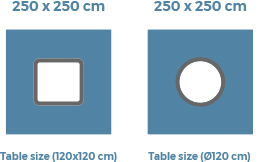
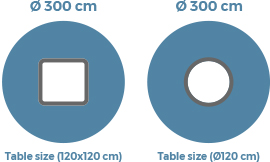
Round and Square Dining Tables
Different size options for the rug in the living room
When the clients ask us whether there is a “golden rule” when choosing the size of a carpet for their living, our answer is always the same: There is no “golden rule”! It all depends on your taste, the place you have, and the type of furniture you already have in that room.
There are, however, 3 main options when talking about size:
Option 1:
A large rug, where all furniture pieces, such as armchairs, sofas, corner sofa, tables and footstools will sit on. Such a living room will look more pulled together when you choose such a size. What do you take into account when you decide for this layout? There are a few tips, amongst which:
- • Keep your rug around 30 to 40 cm away from the free, visible walls;
- • Make sure the distance from the back feet/side of the furniture to the edge of the carpet is of at least 10-15 cm;
- • Be careful with a too intricate pattern, since some of the pieces of the furniture will cover it and the effect will be lost.
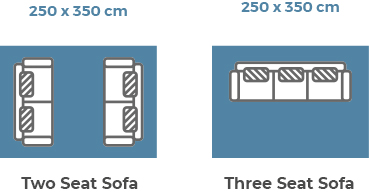
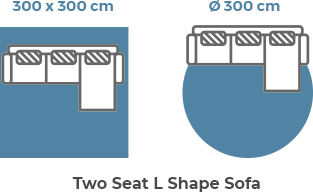
Option 2:
Again a fairly large rug, but in this case, only the front feet of the furniture will sit on the rug. You will still achieve the pulled together look, with a slightly smaller budget. There are of course a few tips to help you measure the right size:
- • The same as above, keep your rug around 30 to 40 cm away from the free, visible walls;
- • Depending on how high are the feet of your sofa, for example, you need to make sure your carpet lies far enough under it so you don’t get to see the floor under.
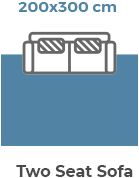
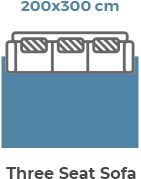
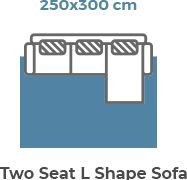
Option 3:
A small rug, lying free between all pieces of furniture could also be a solution. This is when you want to bring a carpet with a particular pattern or a bright colour in your living room. It can work, as long as you take the following into account:
- • A small rug will make your room look smaller as well, so be careful with this in small, dark living rooms;
- • Think about that coffee table. Go for smaller side tables instead, so you can actually enjoy the carpet and it’s design even more.
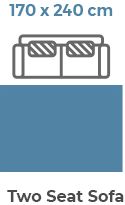

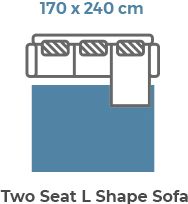
As we said above, there is no “golden rule”, therefore feel free to improvise, combine or use any of the above tips. At the end of the day, it is your home we are talking about, and you should decorate it according to your taste.
How about the rug in the bedroom?
Gone are the days when you threw a couple of small carpets around the bed and the job was done. Bedrooms have become far more important in our daily (or nightly) life, and decorating them well takes time and energy. It should do anyway, because living a good life relies on a good, healthy night sleep.
Ensuring that you achieve a calm, balanced interior scheme and the right carpet/area rug can make it or break it can definitely help this. So our suggestion is take your time, and choose what is right for you. At the end of the day it’s your home, so you need to decide. We have put together a few tips, which we hope will help you choose the right area rug.
I know it sounds strange, but leaving it to the last minute in choosing the carpet sounds like decorating the bed, and then ordering the furniture. We feel that the carpet is one of the first objects you should consider. This is because you have usually much more choice in paint, wallpaper, curtains, etc. Otherwise you might be searching months for the ideal rug.
You should also consider the type of carpet you want. If you want a plushy, luxurious feeling at your feet when you step out of bed in the morning, a shaggy, high-pile rug might be the answer. Just keep in mind that this type needs a little more maintenance, so it wouldn’t be ideal if you choose for a rug that would be half-covered by your bed. It is beautiful but slightly less practical. Of course, if you have enough space under it that you can regularly vacuum clean it, this is not a problem.
Take into account intricate patterns: they might get lost under the bed, so it might not be such a great idea if you place the carpet halfway under your bed. A pattern needs to be shown, so if you have the place next to your bed, I would rather suggest presenting it there.
Bedrooms have usually less traffic, so here you can choose for a more delicate structure should you wish. Think about a fine bamboo silk rug, or a beautiful cowhide...
It might sound strange, but sometimes a large rug placed halfway under the bed is more budget friendly, as well as creating a much bigger visual impact and Wow factor. Think about the fact that you would need minimum 60 cm of carpet around the bed in order to maintain the proportions in the room.
Please see below a couple of sketches with different layout options, to help you decide which size and format would suit your bedroom best.
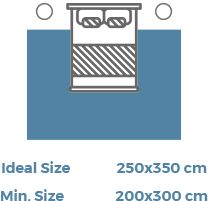
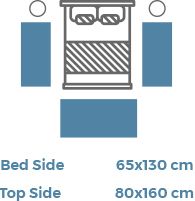
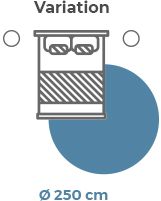
Of course you can always contact us for further input and advice. After all, we’ve been doing this job for more than a hundred years.
And finally, the “Golden Rule” is that there are no rules. It is your taste in the end; so don’t be put off by what other people say. Dare to be unique, dare to be different.
- ✔️ 30 days return guarantee. Don't like the rug? You get your money back. *
- ✔️ Free delivery within the EU for orders above €150.
- ✔️ We deliver our rugs worldwide
- ✔️ Not satisfied? We come and pick up the rug at your place by appointment
- ✔️ Evaluated by customers with a 4.8/5 on Trustpilot
It is of course possible that an ordered product is not to your satisfaction and you want to exchange or return the product. With us it is possible to exchange or return the product free of charge within 30 days after receipt *. This is two weeks longer than the usual deadline, so that you have enough time to reflect.
Please note: the product must, for both exchanging and returning, be in as original a condition as possible and undamaged. In case of any damage, costs may be charged.
*Please refer to our general Terms and Conditions for more information. For exact delivery information, please contact us at all times.
• Clean your carpet regularly with a commercially available vacuum cleaner to remove dust and dirt.
• Even the best quality carpets can give off some fluffs in the first couple of months. This is a normal process, please keep vacuum cleaning the carpet regularly and this will visible decrease. The best way to vacuum clean a carpet is going slowly in both directions ( length and width of the carpet ). Don't use a vacuum cleaner with a beater bar as this might damage your carpet.
• Some individual threads may come loose during the first few weeks of use. Do not pull longer threads protruding from the pile. Cut off these threads with a pair of small scissors.
• Remove stains using a damp cloth. Do not rub. Do not allow stains to dry. Always work your way from the outside of the stain, towards the inside.
• As a final note: Have the carpet cleaned by a professional carpet cleaner should more intensive cleaning be required. You can always contact us should you need further help or information.
The Right Way to Vacuum Your Carpet
Back and forth movements in quick successions when vacuuming are less effective. With the quick motions, your vacuum cleaner will not suck up all the lint and dust from your rugs. Unfortunately, many people do not know how to vacuum properly, and their carpets end up looking old and tarnished. How do you know your vacuuming skills are sorely lacking?
With improper vacuuming, you will notice dark lines on your carpets near the edges. Your house will also be dusty, and there will be a series of allergies. If your socks become dirty when you walk around the house, chances are the carpet has layers of dust. High traffic areas will also look dark because they are caked in dirt. Most of these problems are fixed with proper vacuuming.
How can you vacuum like a professional? Take a look at how your skills can improve by following the expert vacuuming tips below.
Create a Vacuuming Schedule
If you wait until your carpet appears dirty to vacuum, you are setting yourself up for disaster. By the time the carpet looks dirty, it will require a deep clean. Rugs gather dirt, dust, lint, and spills daily. If you wait for a week, it will be caked in dirt and become a hassle to clean. If you want to clean your floors regularly, ensure it is part of your weekly or daily schedule.
Vacuum Slowly
Do not be in a rush to finish the chore without ensuring the carpets are in pristine condition. Set the correct speed and take your time when moving across the floors. When you run the cleaner back and forth the vibrations from the appliance loosen dirt in the carpet fibres. If you rush over and fail to make another pass, you will not collect all the dust on the floor.
Give Extra Attention to High Traffic Areas
Carpets in living rooms, foyers and dining areas, get more traffic compared to other rooms. That means they gather more dirt and dust. If you fail to vacuum them properly, the carpets will look old and dark. While the frequency of vacuuming depends on the activities in your household, you need to clean the areas frequently. It would be best if you also took your time to clear all the dirt in the fibres. Deep cleaning the areas occasionally will also improve the durability of the carpets.
Get the Right Vacuum Cleaner
With a variety of appliances available in the market, you need to choose the right cleaner for your floors. For instance, cut-pile carpets require a different vacuum cleaner from soft carpets and rugs. When selecting a cleaning appliance, ensure it meets the minimum standards of dirt removal and retention of carpet appearance.
Beater bars, a rotating brush, also determine your choice. The rotating brush loosens dirt and dust caked in the carpet fibres. While it is a necessity when you have a cut-pile carpet, it could damage soft carpets. Rugs and soft carpets are made by looping fibres. Therefore, agitating the fibres can give the carpet a fuzzy look. Besides, if some of the fibres wrap around the beater bar, it could create a run on the rug. If your carpet is from natural fibres like wool or is looped, avoid vacuum cleaners with beater bars. Alternatively, you can look for a cleaner that allows turning off the rotating brush and using the suction option only.
Keep the Appliance Clean
For maximum efficiency, your vacuum cleaner needs to be in a proper working condition. The appliance requires adequate airflow to suck up dust and dirt from the rugs. If you use the vacuum until the bag is full to the brim, the machine will be less effective. It is wise to change the bag or keep an eye on the canister constantly.
For bagless vacuums, you can monitor how full the container is. You do not have to empty it every time but starting with an empty container makes your efforts effective. Bagged vacuums should be changed when they are at three-quarters full. Waiting for too long can clog the hose, and the appliance may not have the necessary suction to clean the carpet.
Adjust to the Right Height
Vacuums rely on airflow to suck up dirt and dust from your rugs. To maintain adequate airflow and excellent suction, you need to use the right vacuum height. A vacuum head with an adjustable height is a must-have if you have different styles of carpet in your house. Before commencing your cleaning routine, ensure you check the height recommendation for your rug. The appropriate adjustments make a significant difference in the cleanliness of your carpets.
Use Proper Vacuuming Techniques
It is vital to master proper vacuuming skills to ensure the carpet becomes spotless. For instance, you should pass the vacuum cleaner back and slow in both directions. If you move in one direction only, you will not get rid of all the dirt since some will hide inside the fibres. Therefore, you should repeat the same spot multiple times to remove every speck of dust from your rug. While you do not need to deep clean daily, thorough vacuuming occasionally is good for your carpets.
Vacuuming the edges can be difficult. However, you can use the crevice attachment to clean the edges of the walls, corners, and underneath unmovable furniture. Stairs can also be problematic to manoeuvre the vacuum head. You will need a hose attachment to reach every crevice on the stairs.
If you have raised furniture in your living room, you should vacuum beneath them. Dust builds up underneath the sofas and on bookshelves, and if you do not clean it, they will pile up on the carpet. Using the floor attachment will pick up any dirt underneath the furniture.
Dust Your House Before Vacuuming
In the past, vacuum cleaners emitted debris alongside their exhaust. Therefore, you had to dust after vacuuming the room. Nowadays, with HEPA filters, you do not have to worry about debris from the appliance. It would help if you shook your curtains to release the dust and let it settle before vacuuming. It would be best if you also dusted the furniture, entertainment centres, and shelves. Cleaning the carpet before dusting is a waste of time since the dirt from the surfaces will settle back on the rugs.
Prepare the Area
Pick up items lying around the floors, including toys or pet beds. When removing the objects, focus on small items like paper clips that could damage the vacuum cleaner. The objects could clog the appliance and impair the suction. Occasionally, you can move around the furniture to clean underneath them. Cleaning beneath the furniture can be done monthly.
Remove Stains Before Vacuuming
Vacuum cleaners are not stain-removers. Therefore, if you have stains on your rugs ensure you deal with them before vacuuming. Treating spots will boost the results of your vacuuming. Even with regular vacuuming, you also need to deep-clean your carpets. Deep cleaning using shampoo and steam removes any dirt in the carpet fibres, which means your vacuuming work will be easier.
With the above tips, you can vacuum your floors professionally. Besides, they make cleaning fun and easy. If you adopt good vacuuming habits, you can preserve the life of your carpets and improve the air quality in the house.



